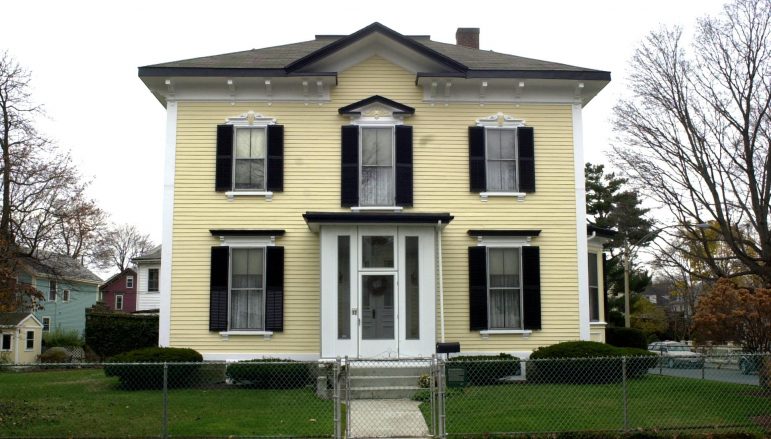I’m not from Birmingham, I’m from south Alabama, and I come up here for treatment and decided to stay up here…
My family hasn’t been able to deal with my bipolar and I found myself homeless…
Homeless with bipolar disorder — also known as manic depression — Dean, Cindy and Lisa all had trouble staying on their medications over the years, but that’s changing.
“I was crazy off my meds, you know? I was totally crazy off my meds. I’d do crazy things. You know, but I’m stable and you know, thanks to Jana and the other ladies here, you know, they are wonderful here.”
Here is Safe Haven. It’s a shelter geared specifically toward chronically homeless women with mental illnesses. Pathways has run an emergency shelter for years, but Safe Haven — a permanent shelter — is about six months old. Executive Director Connie Hill says with the creation of Safe Haven, the first shelter of its kind for women in the state, they’re able to help a population that had fallen through the cracks.
“We all knew there was a need; we’ve known that for years. How to address that need in a way that was really comprehensive and didn’t just repeat the cycle … you wanna do something other than house people for three or four months and then see them again a year from now.”
Safe Haven hopes to break that cycle by making few demands on its residents. At many other shelters there are hard and fast rules for women staying there — they have to be in by curfew, not sleeping in your bed often means losing it — those sorts of things. There are rules at Safe Haven, the women are expected to take their meds for example, but Emergency Services Director Jana Meeks says they play fast and loose.
“We try to say, if you do this, this and this then this will be your reward. You know we try to overlook, as much as we can, the negative behavior and reinforce the positive behavior. And I really think other folks need to look at that model because it is different from what people are doin’ and people do respond better; I know I would.”
The program is funded, in part, through the federal Department on Housing and Urban Development. Support from local entities, like the United Way and The Community Foundation of Greater Birmingham, also helped get the shelter up and running. UAB’s Stefan Kertesz says that mix of local and federal dollars is the only way the problem of chronic homelessness is ever going to be solved.
“The success stories from around the country usually involve bringing resources out of the community that are local.”
Kertesz studies homeless issues. He also co-chairs the policy committee for the Mayoral Commission on Ending Chronic Homelessness.
“That means that philanthropic communities in the state and the city find additional funds to support the services and match what investment is coming from the federal government. And unless the community can match the investment from the federal government very little is going to be accomplished.”
That partnership mentality is something the people running Safe Haven have taken to heart, not only in the grand scheme of things, but also on the small scale. How they work with the women at Safe Haven. Again Emergency Services Director Jana Meeks.
“It’s a 50-50 thing. It’s not just us saying ‘okay you can come in’, it’s them also saying ‘I would want, I would like to come in’ and empowering them and lettin’ them know this, from the very start, this is a partnership.”
This is the Safe Haven. Hey y’all wanted to show Rosemary the place. This is the living area … and this is a room. Chris, can we peek in? Is it peekable? Just want to show her a room so she can get an idea.
The rooms feel kind of like dorm rooms — they’re on the smaller side, each baring the stamp of the woman living there. On one bed sits a stuffed elephant a resident got after helping with Hurricane Katrina cleanup in New Orleans. But more important than their bedrooms or the living room they share is the sense of family these women, who’ve been on their own for so long, have created.
“It has really helped, you know, to know that you have a family here that you can talk to. Whatever you need, your needs are furnished and, uh, it’s just really good to have friends and to have family here.”
And research shows people with mental illnesses do much better in treatment and stay on their meds if they have family and friends surrounding them. The hope at Pathways is the relationships the women form at Safe Haven will be with them the rest of their lives.
Recovering addicts have trouble with federal housing standards
Researchers at UAB have been working for years on developing an addiction treatment model that would stick; one recent trial (dealing with homeless crack cocaine addicts) clearly showed that addicts given stable housing were more likely to stay clean than addicts who remained homeless.
Armed with the study’s outcomes Dr. Stefan Kertesz began to wonder what happened to these addicts once the trial was over. Did those who’d found housing keep it? How many of the recovering addicts had jobs? What he found was that most recovering addicts, many of whom also live with a mental illness, had a hard time staying housed.
Kertesz says part of the problem is that federal housing guidelines (many of the recovering addicts were in federal housing) are too strict when it comes to addiction, requiring former addicts to be clean 24/7 — kicking them out if they fail even one drug test. Another problem, he says, is a lack of funds.

